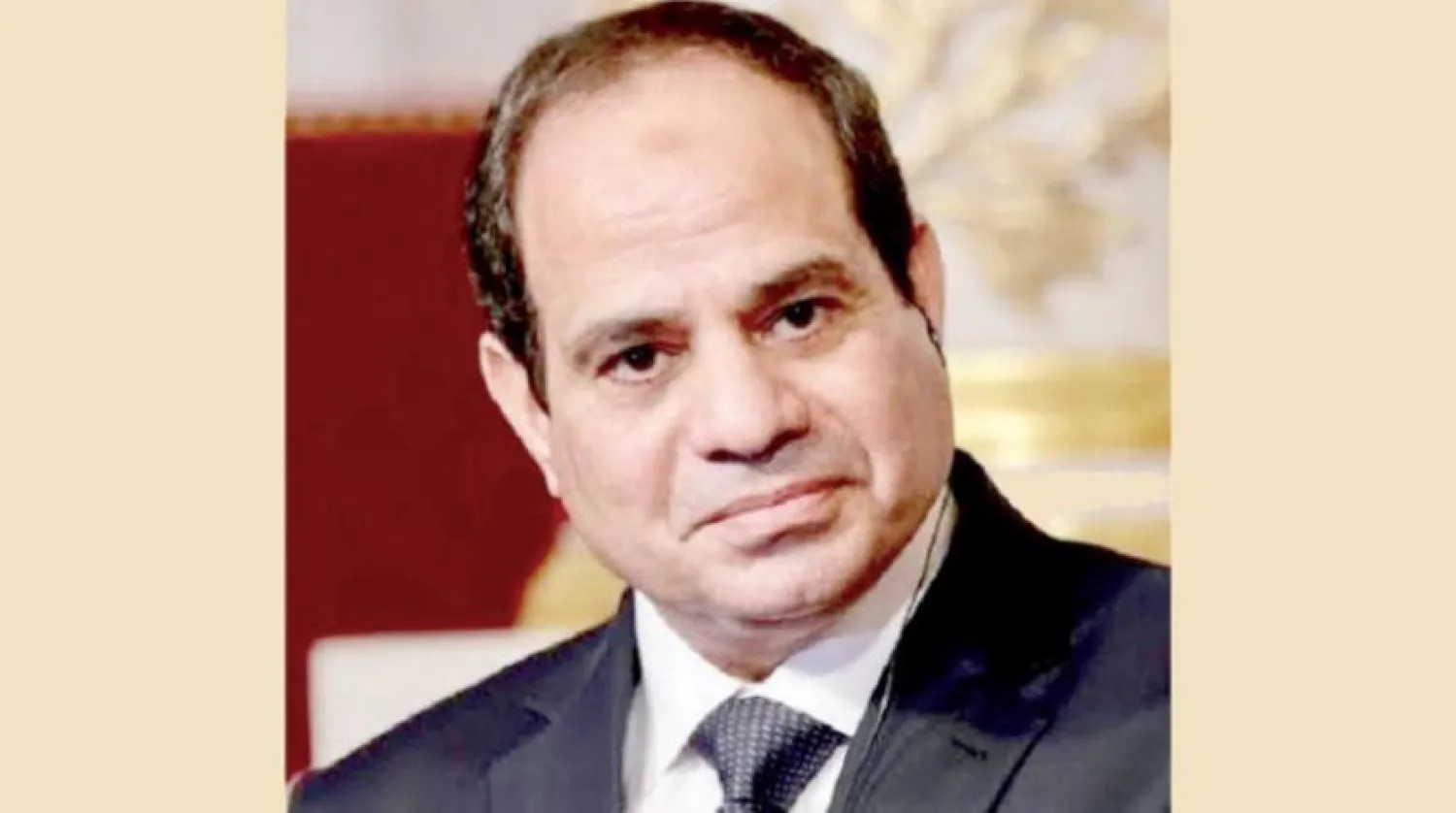Egyptian President Abdel Fattah El-Sisi affirmed on Friday that Egypt values its firm, historic friendship relations with Russia, and the tangible progress in relations the two countries have been witnessing over the past years in a multitude of vital sectors.
The President was speaking by video link at the opening session of the 25th St. Petersburg International Economic Forum, held under the patronage of Russian President Vladimir Putin.
Sisi congratulated his Russian counterpart on the silver jubilee of the St. Petersburg International Economic Forum, stressing that since 1997, the forum has become a leading platform for business community and a remarkable economic event that seeks to discuss the key economic issues facing emerging markets and the world.
He said that Egypt, as a guest country, will be part of this year's forum, which marks the 25th anniversary of its launch, confirming the distinguished level that the Egyptian-Russian economic relations have reached over recent years.
Sisi said that this year's forum is being held amid unprecedented political and economic circumstances and challenges of a strategic nature.
“We hope that the forum’s outcome contributes to finding effective solutions to these challenges in a way that mitigates the impact of the global economic crisis and its negative repercussions on many countries in the world, especially the economies of emerging countries,” he said.
The President also said that Egypt and Russia have been engaged over the past years in the implementation of mega and ambitious projects that serve both countries and respond to the aspirations of their peoples to realize more economic progress.
He listed the project for the establishment of the Dabaa nuclear power plant, which comes within the context of the Egyptian State’s strategy to expand in national projects for the use of new and renewable sources of energy.
Another project is the establishment of the Russian Industrial Zone in the Economic Zone of the Suez Canal, which is meant to become an important platform for industry in Africa.
This is, in addition to cooperation between the two countries to upgrade the Egyptian railway network and other joint ventures that realize benefits for the two peoples.
Egypt and Rosatom signed on December 11, 2017 several documents to put into force the commercial contracts for the construction of the El-Dabaa nuclear power plant.
The plant consists of four nuclear reactors, each with a capacity of 1,200 megawatts, with a total capacity of 4,800 megawatts.
In previous comments, Egypt’s Minister of Electricity and Renewable Energy, Mohammed Shaker, confirmed that the first unit of El-Dabaa nuclear power plant is expected to be completed by 2026.
On Friday, Sisi also spoke about “Egypt Vision 2030,” which was launched to reflect the state’s long-term strategic plan to achieve the principles and goals of sustainable development, with its economic, social and environmental dimensions.
Based on this vision, he said the government has modernized its legislative structure to enable Egypt to lure more foreign investment and to become the top destination for attracting foreign investments in Africa.
The vision also made Egypt succeed in implementing mega agricultural and transportation projects, according to Sisi.
But despite the mentioned national efforts, the Egyptian President said his country’s actions and efforts to achieve progress were hit recently by economic crises caused by the COVID-19 pandemic.
He said the world was partially recovering from its effects and repercussions, when it was hit again by a great economic crisis that cast a shadow over growth rates and negatively affected states’ budgets, reflecting on the rise of fuel prices and the decline in the value of the national currencies in the face of hard currencies.
“Addressing this crisis requires international efforts and collaboration among all parties in order to get matters back to their normal state, particularly the movement of maritime traffic and the regularity of supply chains, particularly foodstuff, such as grain and vegetable oil,” Sisi said.
He added that the crisis also requires working toward restoring calm and stability at the international level, in order to mitigate the impact of this economic crisis on the peoples, who seek peace and development.









